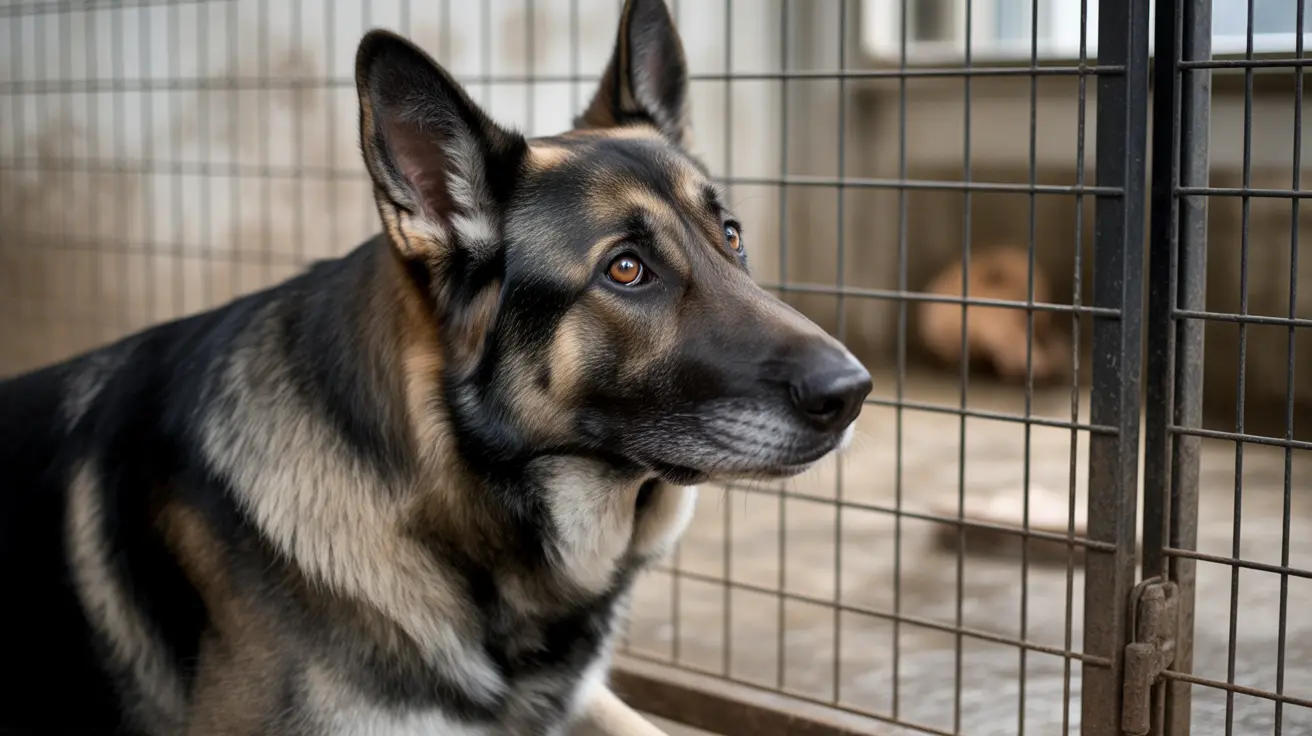When your dog develops a runny nose and diarrhea simultaneously, it can be concerning for any pet owner. These symptoms often indicate an underlying condition that requires attention, with reovirus being one common cause. Understanding the relationship between these symptoms and knowing when to seek veterinary care is crucial for your pet's well-being.
In this comprehensive guide, we'll explore the causes, treatments, and warning signs associated with these concurrent symptoms, helping you make informed decisions about your dog's health.
Common Causes of Runny Nose and Diarrhea in Dogs
Several conditions can cause both respiratory and gastrointestinal symptoms in dogs:
- Viral infections (such as reovirus and canine influenza)
- Bacterial infections
- Environmental allergies
- Dietary sensitivities
- Stress-related issues
Understanding the Connection Between Respiratory and Digestive Symptoms
While it might seem unusual for a dog to experience both a runny nose and diarrhea simultaneously, these symptoms often occur together due to viral infections that affect multiple body systems. The immune system's response to infection can trigger inflammation in both the respiratory and digestive tracts.
Treatment Options and Home Care
Immediate Steps to Take
When your dog shows signs of both runny nose and diarrhea:
- Monitor water intake to prevent dehydration
- Provide a bland diet (boiled chicken and rice)
- Keep your dog warm and comfortable
- Clean their nose gently with a warm, damp cloth
- Ensure they have a quiet place to rest
Supportive Care Measures
Additional supportive care may include:
- Offering small, frequent meals
- Using pet-safe saline drops for nasal congestion
- Maintaining good hygiene to prevent spread
- Running a humidifier to ease respiratory symptoms
When to See a Veterinarian
Seek immediate veterinary care if you notice:
- Severe lethargy or weakness
- Blood in stool or extremely watery diarrhea
- Thick, colored nasal discharge
- Difficulty breathing
- Refusal to eat or drink for 24 hours
- Signs of dehydration (sunken eyes, dry gums)
Prevention Strategies
To help prevent these symptoms from occurring:
- Keep vaccinations current
- Maintain good hygiene practices
- Avoid exposure to sick dogs
- Feed a consistent, high-quality diet
- Regular veterinary check-ups
Recovery and Aftercare
Most dogs recover from mild cases within 5-7 days with proper care. During recovery:
- Gradually reintroduce regular food
- Continue monitoring symptoms
- Keep other pets separated if infection is suspected
- Maintain a clean environment
Frequently Asked Questions
What are the common symptoms of canine reovirus infection, especially runny nose and diarrhea?
Common symptoms include watery diarrhea, clear to slightly cloudy nasal discharge, sneezing, mild coughing, decreased appetite, and possible lethargy. These symptoms typically appear together and may be accompanied by mild fever.
How can I support my dog's recovery at home if they have a runny nose and diarrhea caused by reovirus?
Provide plenty of fresh water, offer a bland diet, ensure rest, and keep their living area clean. Use warm compresses for nasal discharge and monitor their hydration levels closely. Small, frequent meals can help maintain nutrition during recovery.
When should I take my dog to the vet if they have a runny nose and diarrhea with suspected viral infection?
Seek veterinary care if symptoms persist beyond 48 hours, if your dog shows signs of dehydration, has severe lethargy, stops eating or drinking, develops difficulty breathing, or if diarrhea contains blood or is severely watery.
How is canine reovirus diagnosed and differentiated from other causes of diarrhea and respiratory symptoms?
Veterinarians typically diagnose through physical examination, reviewing symptoms and history, and may perform laboratory tests including fecal analysis and blood work to rule out other conditions and confirm the diagnosis.
What steps can I take to prevent spreading reovirus to other dogs in my household or dog park?
Isolate infected dogs, practice good hygiene including regular hand washing, disinfect shared areas and items, and keep affected dogs home until fully recovered. Clean all food bowls, toys, and bedding thoroughly.






